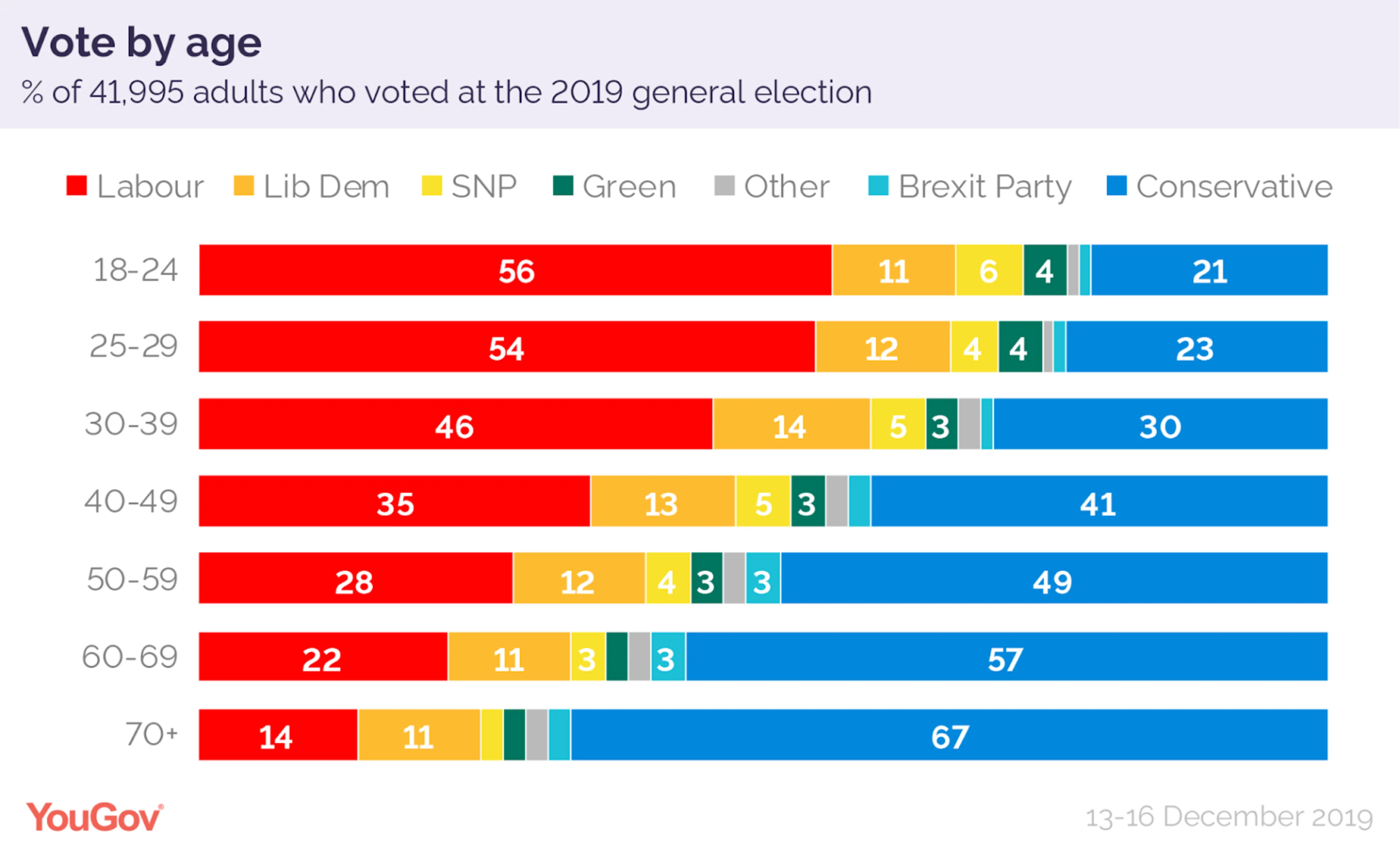One of my favourite jokes to see floating around the internet is titled “What have Millennials killed now?”. Whenever an industry takes a nose-dive, some journalist looking for easy clickbait ad revenue will ask, “Why are those darned woke under 30s trying to close our beloved X factories?”. The best example is, of course, The Economist’s infamous “Why aren't millennials buying diamonds?” tweet, to which the answers ranged from the pithy “Bc it’s a scam”; to the zeitgeist capturing “Like a millennial can afford diamonds nowadays. Shit, I can barely afford gas and a bag of chips… and sometimes I leave the chips”; to the telling fact that people are marrying later and later, because under 30s have never been poorer.
Recent polling has found that 18 to 25-year-olds believe the economy is the most important concern in the country. No wonder. The UK economy is likely not only to shrink, but to be outperformed by the heavily sanctioned Russia. As the economic pie gets smaller, so does the likelihood of young people getting any of it. The same can’t be said for those on the other side of the age gap. Retirees enjoy the pension triple lock, arguably the most unfair bit of legislation designed to benefit the elderly at the cost of all else. The notion that the state pension should rise in line with price hikes, average earnings or by 2.5% (whichever is highest) is a great boon, but it’s also shovelling wads of taxpayer’s money into the wealthiest demographic in the country. Politicians know this is unfair but they also know that about 80% of old people vote. As Harvey Jones of The Daily Express succinctly put it:
“Loads of politicians would love to axe the triple lock, but they also want to win the next election. They can't do both, and they know it.”

Young people tend to vote for a variety of left-wing parties that never secure majorities in Parliament. In 2019 only 21% of 18 to 24-year-olds got the government they voted for. No wonder young people stop voting if 79% of their votes go to waste. If only there were a way to ensure that every vote counted… It might be fun to focus on the Boomer/Woke conflict but this kind of political and economic disparity is a far bigger rift. There’s only so much money and democracy to go around and it’s not the under 25s who are getting it.
The young and old don’t share wealth, and they don’t share time together either. John Yates of the Youth Endowment Fund notes that “Most pensioners know no one under 35 (apart from their grandchildren). A fifth of (EU) Leavers and a quarter of Remainers have no friends who voted the other way”. Given that people have never been less likely to join a club or society is it any wonder that for many the only interaction they’ll have with someone on the other side of the age gap is over toxic Twitter discourse? The social fabric has many tears but there is none more in need of darning than that separating the young and the old.
The Tories have no desire to change an unfair system that keeps rewarding them.
Not only do the young and old both socialise apart, they tend to get their news from different sources. Print and news media are kept afloat almost entirely by the over 55s whereas young people increasingly gain their news from social media. Young people simply don’t trust “the most right-wing press in Europe”. It doesn’t help that news channels and breakfast television programmes have “what are the papers saying” segments which effectively sneak right-wing newspaper propaganda in front of non-readers.
We need to break this impasse. A functioning society simply can’t have two demographics who never interact except to generate click-bait vitriol. It also can’t afford to ignore one group at the cost of the other. We need young people to vote in large enough numbers that they stop becoming a demographic that politicians can ignore and their concerns about mental health and climate change can stop being infantilised. It’d be a lot easier for the young and old to listen to each other if their voices had equal volume and their votes had equal weight. Maybe then we’d see that youth-orientated policies wouldn’t send the country to the dogs and see that the majority of old people aren’t foaming-at-the-mouth radicals. The solution isn’t even that radical, it’s a voting system that has already been adopted by forty European countries:
It's called Proportional representation.
“Rather than the all-or-nothing approach of First Past the Post, each area elects more than one representative. The size of this area can vary according to the system, ranging from the size of the whole country to a county or village. This means that you have a team of MPs that reflect the strength of the different political opinions in your area.”
Basically % of votes equals % of seats. One of the major benefits is rather than the all-or-nothing system where the opposition has nothing to do but snipe from the side-lines and shake their fist at the government, chances are there will be no overall majority and they, as representatives of the people will have to form some sort of coalition, so that everyone is forced to work together for the general public.
I believe that this would stop parties playing to their bases and feeling the need to stoke divisions to get their party over the 50% line. Currently, the Tories are haemorrhaging votes amongst young people, their solution? Voter suppression, which of course plays to their base (older voters) and further stokes divisions between the two. Imagine a system whereby not only could everyone vote, but everyone’s vote counted equally, politicians would have to ensure they were offering policies that worked to the mutual advantage of both young and old. And, locked into coalition governments, the most unfair bits would, in theory, be negotiated out.
I’ll admit it’s a pipe dream. The Tories have no desire to change an unfair system that keeps rewarding them. As for Labour, huge policy announcements seem unlikely given Starmer’s plan to say and do as little as possible, for fear he accidentally snatches defeat from the jaws of victory come election time. The House of Commons itself is so wedded to the black-and-white government/opposition stance that the very floor is designed to be two sword-lengths apart.
Until the leader of either party is visited by three ghosts from the Electoral Reform Society, it seems as if Proportional Representation is unlikely. It may be a dream, but why not be ambitious now? I think it’s a great idea and I’ll think so when I’m 64. At least if we somehow pull it off it’ll prevent me from becoming some Boomer lamenting “I told you so”.
Written by
Alistair MaxwellFreelance writer. Arts and culture enthusiast. Interested in why things are the way they are.
Read next
I'm fed up with 'Forever'. Where's our Übermensch?

Sion Marsh
Ignorance is not bliss. Take back your political ownership

Archie Rankin
Why don't we vote? Let's address the elephant in the room

Sean Ryan
Weekly emails
Get more from Alistair
The Fledger was born out of a deep-seated belief in the power of young voices. Get relevant views on topics you care about direct to your inbox each week.
Write at The Fledger
Disagree with Alistair?
Have an article in mind? The Fledger is open to voices from all backgrounds. Get in touch and give your words flight.
Write the Contrast

